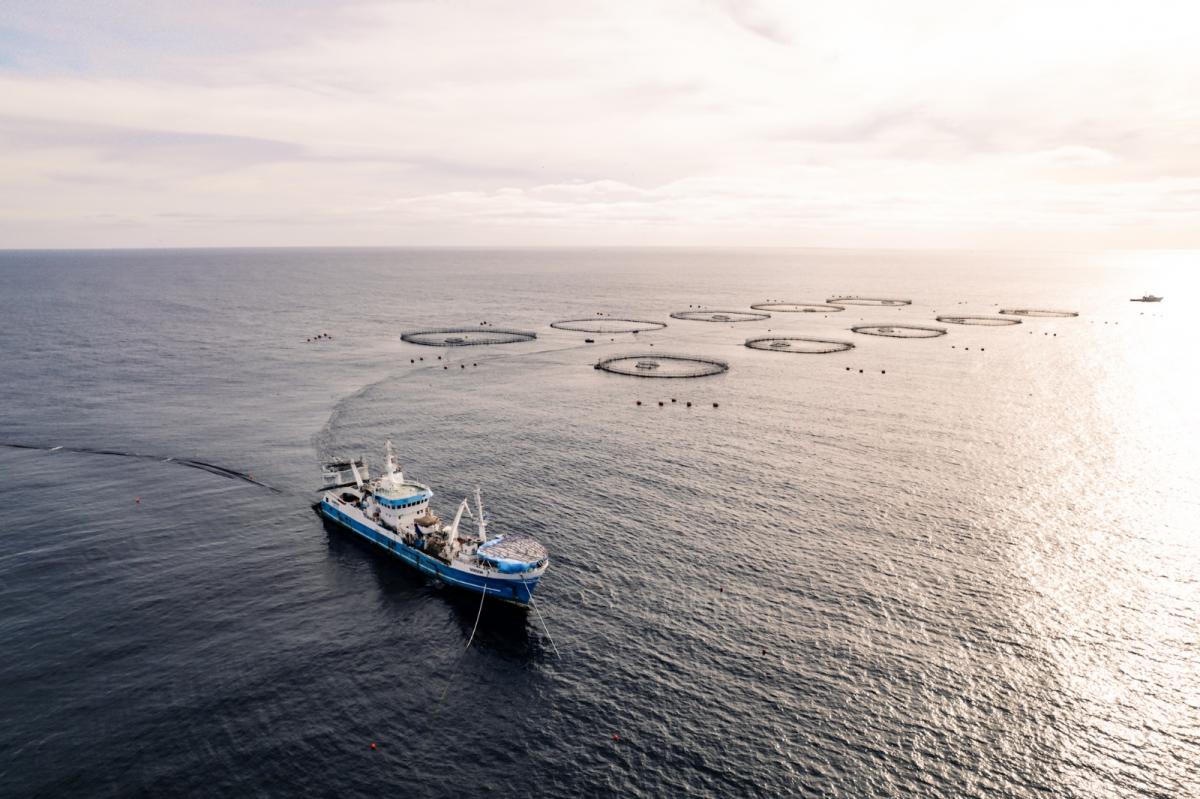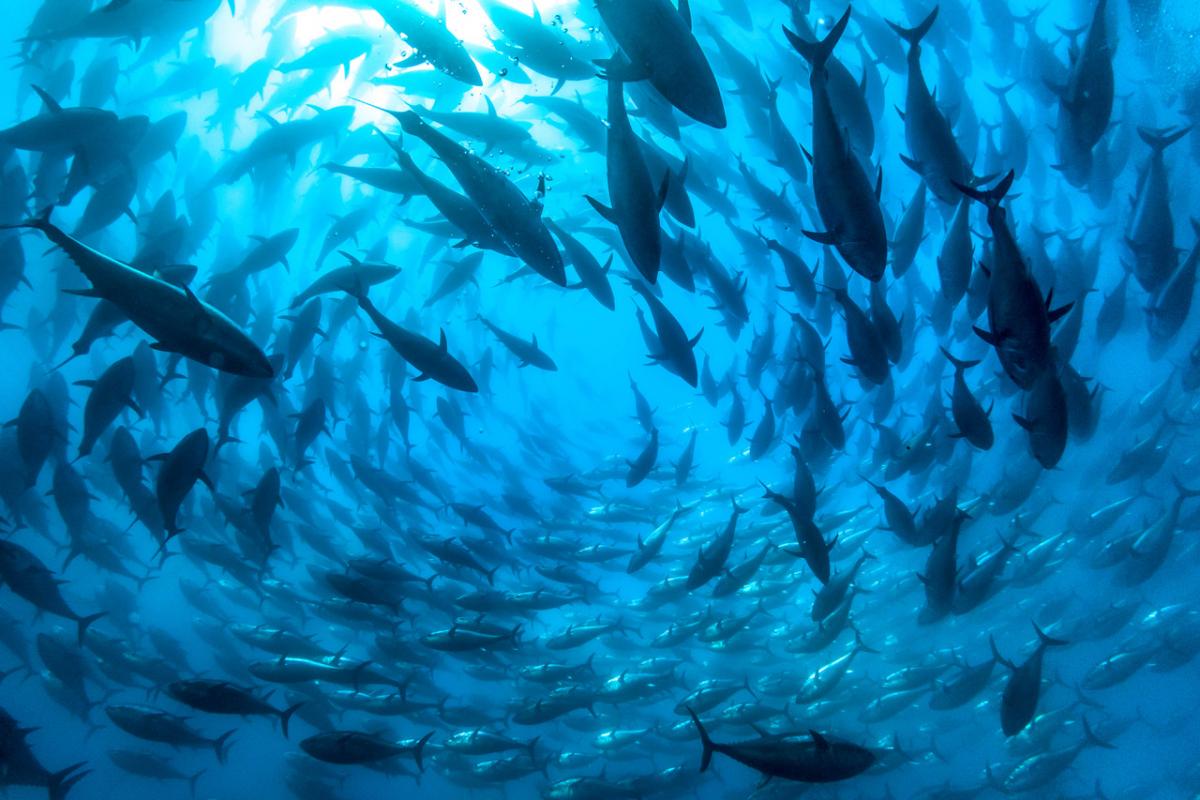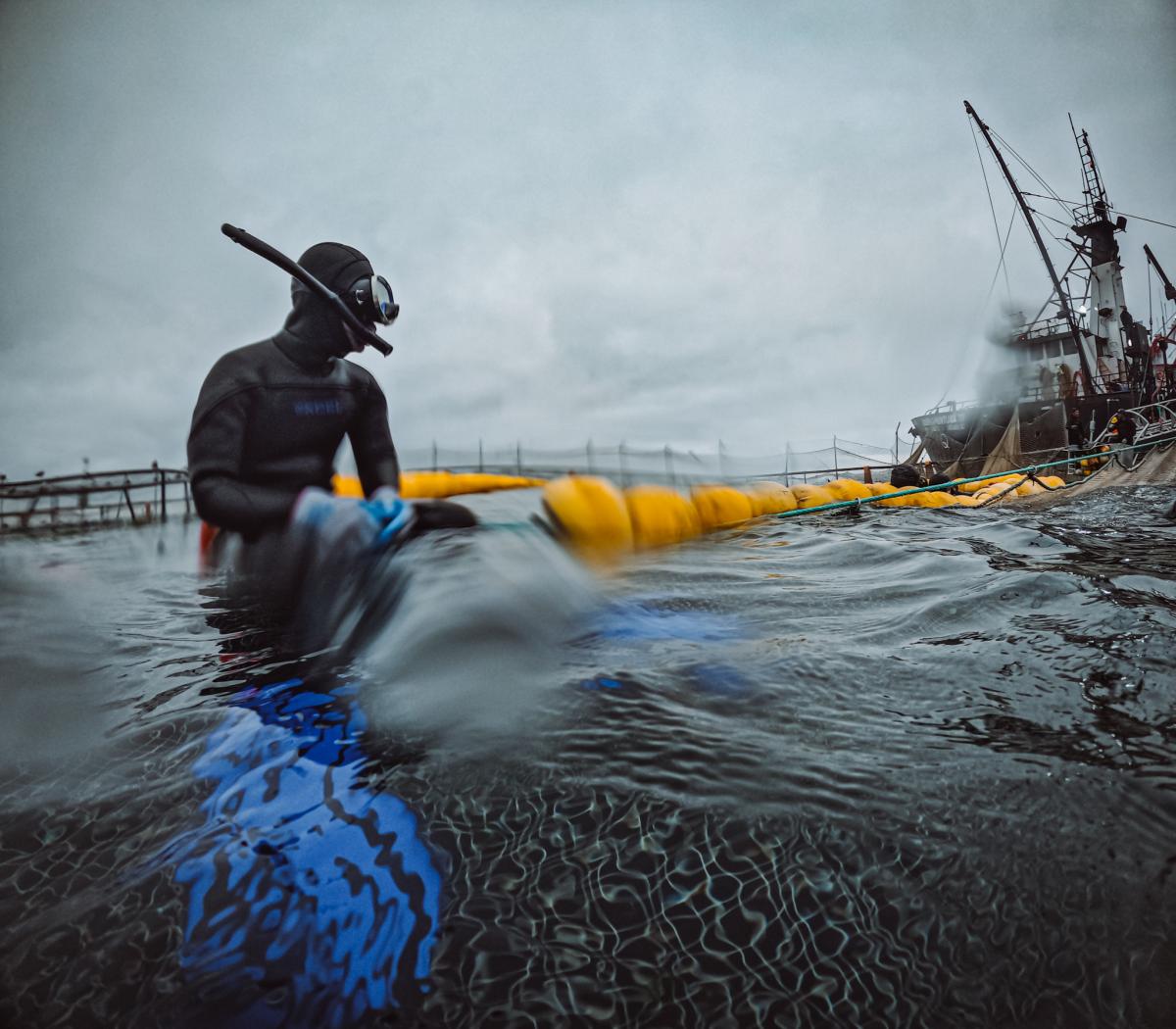Visible from San Diego on a clear day, but occupying Mexican waters, the Coronado Islands sit eight miles off of the very northwestern tip of Baja California. Small and uninhabited, their major draw is the fishing opportunities for recreational anglers from Southern California and northern Baja. Deep, clean, cold water courses around the rocky peaks that act as a bastion for marine forage fish, which in turn attract prized species like California yellowtail amberjack.
These conditions, however, piqued the interest of a different kind of fishing venture. Nestled off the east side of the islands are Baja Aqua Farms’ (BAF) offshore net pens, where hundreds of Pacific bluefin tuna are reared and raised before they’re harvested for buyers worldwide. Tuna ranching, the act of catching juvenile tuna and raising them in pens until they are of market size, is common in the Mediterranean, but this Pacific business is making a name for itself by pursuing the highest standards in the industry.

Founded in 1999, Ensenada-based BAF has grown from a small business to one of the largest tuna ranchers in the world. In 2008 they became the second ranching business in the global seafood industry to ensure fresh bluefin availability throughout the year. Unique among aquaculture operations in that it also integrates fishing, BAF captures bluefin tuna off of Baja California once a year, and transfers the fish to the offshore pens where they are fed fresh sardines – never pellets – for 6-18 months before they are harvested using the gold standard in quality, the ikejime method. The conditions in the pens are monitored three times every day, checking oxygen, algae, pH, and temperature levels. Furthermore, BAF monitors the sediment below the pens twice a year to make sure the ecosystems underneath are not becoming saturated with nutrients from the pens. All of this is part of their unwavering commitment to protecting the resiliency of the oceans that make the business possible. A major component of that is ensuring the viability of bluefin tuna.
“BAF has played a critical role in not only developing the sustainable aquaculture industry in Mexico, but in the recovery story of the Pacific bluefin tuna,” said Rodrigo Armada, Director of Sustainability for BAF. “We advocated for strict quota management measures and promoted the shift from a commodity trade to a premium product.”
In 2010, the Pacific bluefin tuna was listed as an at-risk species due to a historically low wild stock, a mere 2% of the record high. Before, tuna management for this species was like the wild west, with very few controls in place to manage a fish that was sought after by countries throughout the Pacific Rim. In 2014, robust management plans were put in place by two Regional Fisheries Management Organizations (RFMO), and the agencies set a goal to recover the stock by 2034. To everyone’s delight, that target was hit in 2022, and now BAF is pursuing the next steps in their sustainability commitment, by joining FisheryProgress and creating a prospective fishery improvement project (FIP) for their wild capture operation.
BAF has its eyes on Marine Stewardship Council certification, and recognizes that by creating a FIP they’re taking a major step to get there. The business is unique among FIPs, in that it’s the first ranching operation to join FisheryProgress, but their goals are the same. BAF relies upon the western stock of Pacific bluefin tuna for the juveniles they capture for the net pens, and they want to ensure this step of their operation is sustainable on all fronts: environmental, social, and economic. Furthermore, BAF operates its own fleet that catches sardines to feed their bluefin, and this fishery is also working to achieve MSC certification.

BAF works hand in hand with the Mexican representatives to the Inter-American Tropical Tuna Commission, one of the two RFMOs responsible for managing tuna in the Pacific Ocean. They understand that some of the best researchers in the world are managing bluefin stocks, and BAF wants to go the extra mile by pursuing MSC certification.
“Our story is the story of Pacific Bluefin,” said Armada. “We exist and operate only because they’ve recovered, and we’re doing everything we can to make sure we never reach the 2010 point again.”
One of the main reasons they joined FisheryProgress in this quest is the public nature of the reporting platform.
“Sometimes companies need to put pressure on themselves to be accountable for their actions and commitments,” said Armada. “We want to be held accountable by our public stakeholders, and joining FisheryProgress is a major step in achieving that. We can say we’re devoted to transforming this industry and tuna management, but unless our action plan is public, commitments could be empty.”
BAF firmly believes that sustainability encompasses much more than environmental impacts, however; their dedication to social and economic viability is evident throughout their model. Innovation is the driving force behind everything they do, and it’s a key component in their efforts to drive change. The coastal communities that they serve possess an immense wealth of knowledge about life underwater and carry an unmistakable love for the deep blue. This unwavering passion and a nature to tread into uncharted waters has fueled cutting-edge innovation; approaching matters of interest surrounding animal welfare, resources efficiencies, and quality as key opportunities to lead in the industry.

“Everything we do is rooted in perpetuity,” said Aacini Huerta, Communications Manager at BAF. “It’s not just tuna. We want a secure future for the bluefin that we raise, the oceans that support them, and the people we are privileged to serve. It’s about the future of everything we’re proud of as a seafaring community.”
All images credited to Baja Aqua Farms